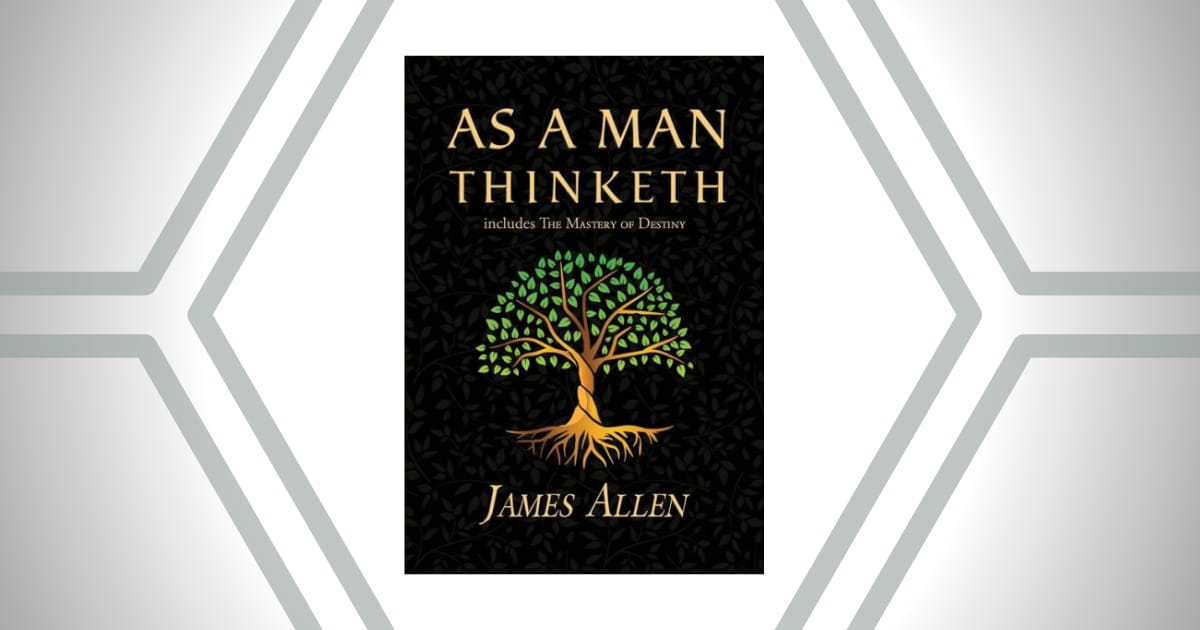In this edition, we dive into the personal development classic, As a Man Thinketh, by James Allen. Written in 1902, Allen’s advice has stood the test of time. Here, we’ll explore the overlooked power we all possess to improve our circumstances by cultivating the right kind of thoughts…
🎯 The Idea In a Nutshell:
Like plants in a garden, thoughts take root in our minds.
The only question is: what kind of plants?
We can be passive and let our minds be overrun with weeds.
Or we can be deliberate, planting the right seeds and helping them bloom.
Learning to cultivate the right kind of thinking can shape our lives in profound ways.
📝 Diving Deeper
A well-manicured garden doesn’t happen by accident. It requires intention. Deliberate effort. Ongoing care. If we choose not to tend to it, weeds inevitably take root. They start small. Hardly noticeable. But slowly, inexorably, they take over until there’s scarcely room for anything else.
The same is true of our minds. If we don’t choose what to plant, the weeds will choose for us. Fear. Resentment. Insecurity. Self-loathing. Anxiety. They grow slowly at first. But soon they’ve wrapped themselves around our sense of self, controlling our habits, driving our mood, and compromising our relationships.
Most of us dramatically underestimate our ability to cultivate the right thoughts. We delegate control of our mindset to external circumstances.
A negative comment from your partner leaves you feeling like a victim.
Being overlooked for that promotion leaves you indignant.
Kids pushing your buttons leaves you frustrated and angry.
Counterintuitively, Allen argues that we have our cause and effect backwards — our circumstances aren’t controlling our thoughts, our thoughts are controlling our circumstances.
Your beliefs about your partner (“She’s never satisfied”) lead to withdrawing or acting defensive, which fuels criticism — a loop your thoughts helped create.
Low self-worth keeps you quiet in meetings or hesitant to propose that bold idea. This keeps you stuck in place, reinforcing the negative thoughts that got you stuck to begin with.
Your generalizations about how “difficult” your child is cause you to engage in power struggles, which makes them act out more, locking you into a negative feedback loop that you are unwittingly fueling.
Allen’s argument can feel uncomfortable, but we need to hear it. We believe we are the victims of circumstance. We want to find peace, to be more successful, to experience more connection. And we’re tempted to blame our thwarted efforts on external circumstances.
But the truth, Allen argues, starts inside of us:
Men do not aquire that which they want, but that which they are.
👉 Why it matters:
With increased awareness, we can more readily discard thoughts that are not serving us.
We can instead choose to focus on and nourish the thoughts that propel us forward.
The right thoughts crystallize into the right habits, and the right habits change who we are.
When we show up like this, the world has a way of reflecting that positivity back to us.
🤔 Prompts for Reflection
What negative habits of mind are you unwittingly nurturing?
What is an area of your life where your own negative thinking has created the very situation you’re frustrated by?
How might you bring more awareness to the “garden of your mind”, deliberately cultivating thoughts that help you instead of holding you back?
Make today impactful,
~Jason

